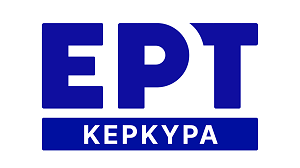This paper aims to present the challenges and possibilities of directing a movie designed for immersive cinema where real actors are filmed and integrated in Virtual Reality environments to result in 1. a “classic cinematic frame” movie, and 2. an Immersive VR movie, using both 3D/360 linear narrative scenes and real-time 3D interactive scenes, following a low-cost virtual production workflow suitable for all media outputs.
In this paper the case study willl be NEUROSYNAPSES movie, a fiction movie and an Immersive Virtual Reality (V.R) interactive movie, written, directed and produced by Nefeli Dimitriadi (to be released in 2023)
In NEUROSYNAPSES movie production green studio filming was combined with filming of the VR sets and scenery by virtual cameras in game engine Unity 3D, to produce both a cinematic frame 2D media output and a VR 360 as well as a real time 3D VR movie and immersive interactive application.
The paper is divided in three parts: firstly the new directing challenges and possibilities are presented, as recorded in the NEUROSYNAPSES movie experience by the director Nefeli Dimitriadi. Secondly, virtual production best practices will be assessed in order to draw conclusions regarding the suitability of the virtual production workflow developed for the production of the movie, and in the third part, the perspective of the actor will be included in the case study based on the experience of lead actress Natali Chavez.
In the first part, major directing issues will be addressed as regards the demands of immersive 360 experiences, such as directing when the camera is “the eyes of the spectator” in immersive VR and 2uestions of embodiment of the viewer, directing for third person point of view and first point of view in a VR movie, placing diegetic & non-diegetic attentional cues, motion and sound to attract viewers attention, as well as the use of optical illusions, perspective rules and lighting for 360 VR sets, POI-matching in 360 editing, as well as scenes transition techniques .
The pre-production process and the pre-visualization steps are documented to show in detail the production workflow needed to facilitate the collaboration of the director, the production designer and the director of photography of the movie, as the roles of each are redefined when virtual production permeates horizontally the creative process and affects directing both during filming and during the process of rehearsals until the final post-production stage of the movie where the final “look” is achieved.
In the second part the comparative analysis of virtual production best practices in large production studios as well as low cost virtual production solutions is conducted in order to assess the results from the NEUROSYNPSES virtual production workflow experience and propose solutions as well as highlight special issues related to the challenges and possibilities presented in the first part.
In the third part, the actors perspective will be examined via the recording of the personal experience of the lead actress of NEUROSYNAPSES movie. This mix of new media in combination with the traditional process of acting on camera constitute a challenge for the actor, offering useful material for the examination of this emerging field, the field of Immersive cinema.
As regards the contribution of this research, the analysis of directing and acting in a virtual production workflow aiming to produce non-immersive and immersive media at the same time, will contribute in defining challenges and best practices using the case study of NEUROSYNAPSES movie production.
Nefeli Dimitriadi is Assistant Professor of “VR/AR/MR & Cinema” at Film Department of School of Fine Arts of Aristotle University of Thessaloniki, and holds a PhD in Art & Technology, a Master in Visual Arts (Univ. Paris 8), a Diploma School of Fine Arts, A.U.TH. and has experience teaching at Hellenic Open University, Athens School of Fine Arts (EU Master “Art-VR”, course “Multimedia – Hypermedia”), and others. She is Director and producer of VR/MR/AR movies and project, coordinator of REACT “VR Applications in Medical Rehabilitation” and participated in ARCON “Augmented reality CMS” projects funded by EU program Research-Create-Innovate. Her research has been published in 43 papers and artwork presented at 29 exhibitions and festivals.
Natali Chavez is a PhD candidate in Film Department of School of Fine Arts of Aristotle University of Thessaloniki, in the field of Virtual, Augmented, Mixed Reality and Cinema and an actress. She obtained a B.A. in International Business and Politics (University of Macedonia), a MSc in Services Management (Athens University of Economics and Business) and an Acting Diploma accredited by Greek Ministry of Culture. She possesses a Certificate of Pedagogical and Teaching (Hellenic Open University) and a Certificate in the Elements of AI (University of Helsinki). She has worked with various important directors in theater (Y.Houvardas et al.) and cinema (C.Nikou et al). Her last movie as a lead actress is “Neurosynapses” (dir.N.Dimitriadi).
Back














